CRiCLE-Net: Working Group
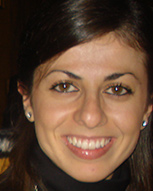 Filio Constantinou
Filio Constantinou
Filio Constantinou is an educationist and an applied linguist. She holds a BA in Education Sciences (University of Cyprus), an MA in Language Learning and Education (University of York), an MPhil in Educational Research (University of Cambridge) and a PhD in Educational Linguistics (University of Cambridge). Her doctoral research focused on the linguistic challenges facing immigrant students in bidialectal communities. Her research interests span bilingualism, bidialectism, educational inequalities, language ideologies, writing performance and educational assessment. She is currently working as a researcher at the Research Division of Cambridge Assessment, University of Cambridge.
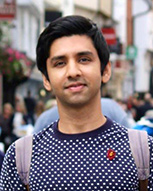 Jenson Deokiesingh
Jenson Deokiesingh
Jenson is a PhD student at the Faculty of Education, University of Cambridge. Prior to joining the Faculty, Jenson worked for two and a half years in Macau, China, as an English language instructor. His professional involvement in TESOL also includes working with refugees in the United Kingdom, and high school and special needs students in Japan. He holds a MA in TESOL from the University of Leeds. His research interests lie in racism and social justice in education which stems from his personal experiences of discrimination in the ELT industry. His research focuses on the stories of Caribbean diaspora English teachers, their multiple identities, prejudices they encounter, and how they may be used as a locus to challenge policies and practices that legitimise discrimination in education.
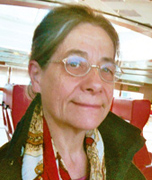 Edith Esch
Edith Esch
Edith Esch was Director of Cambridge University Language Centre and Senior Research Fellow in the Faculty of Education. She is currently Emeritus Fellow of Lucy Cavendish College. Her main current research is in second language education with a special interest in the influence of the British and French pedagogical cultures in post-colonial contexts and more particularly in multilingual societies in Africa where both are in contact. These sociolinguistic and sociocultural themes in education result from her life-long interest in bilingualism, cross-linguistic communication in non-educational contexts, and factors of language change. She has been recently invited to speak at the 18th Commonwealth Conference of Commonwealth Education Ministers in Mauritius.
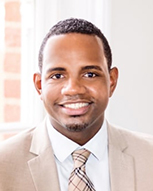 Samy Etienne
Samy Etienne
Samy is an EdD student at the Faculty of Education, University of Cambridge. He holds a MA in English and French Studies from the University of Bordeaux and he did a PGCE in Modern Foreign Languages at the University of Bath. He also holds the National Professional Qualification for Middle Leadership from the Institute of Education. Samy is currently head of French and head of house at a selective independent school in London. His main interests lie in the role of metacognition in second language acquisition learning, the specificities of the metacognition needs of learning in secondary schools and positive psychology. His research project focuses on both language learners’ and teachers’ emotions in the language learning and teaching process.
 Karen Forbes
Karen Forbes
Karen Forbes is Lecturer in Second Language Education in the Faculty of Education, University of Cambridge. She completed her PhD in second language education in the Faculty and recently worked as a research associate on an AHRC project on multilingualism. Within the Faculty, she mainly teaches on the PGCE in Modern Foreign Language and MPhil/MEd in Research in Second Language Education programmes. Her main interests lie in the use of learning strategies in language classrooms and in community language education. In the past she has worked as a teacher of Modern Foreign Languages (French and Spanish) in a Cambridgeshire secondary school and has also taught English as a Foreign Language both in a school in Spain and at various language schools in the UK. Her PhD research looks at cross-linguistic transfer of L2 writing strategies: Developing L1 and L2 writing through metacognitive strategy use.
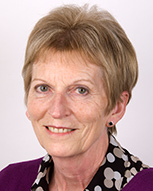 Anne Ife
Anne Ife
Anne Ife is Research Fellow at Anglia Ruskin University, Cambridge where she has for many years taught Spanish and applied linguistics. She currently leads an MA module: Language, Identity and Policy, which reflects her research interests in the learning of second languages, the policy and practice of second language use, and language diversity and policy, especially in Europe. She has published a wide range of articles and chapters on aspects of second language learning and more recently on lingua franca use in intercultural communication. For a number of years she was an assessor for the RSA Diploma in the Teaching of Community Languages in Spanish community schools in Cambridge and London. She has also reviewed appeals in relation to community language assessments for the Chartered Institute of Linguists.
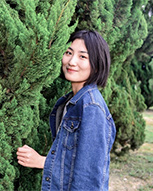 Zixuan Li
Zixuan Li
Zixuan is a PhD student at the Faculty of Education, University of Cambridge. She also holds an MPhil degree in Research in Second Language Education in the Faculty. Her main interests lie in language learning motivation, multilingualism, and positive psychology. She is particularly interested in the motivational profiles of LOTEs learners across various contexts. Prior to joining the Faculty, Zixuan completed her BA in English studies at Southeast University in China and had been an exchange student at the University of California, Los Angeles and Israel Institute of Technology. Her current PhD project aims to apply Positive Psychology principles to understand learners’ L2 learning experience and its relationship with future selves.
 Yongcan Liu
Yongcan Liu
Yongcan Liu is Reader in Applied Linguistics and Languages Education at the Faculty of Education, University of Cambridge and Coordinator of the MPhil/MEd in Research in Second Language Education programme. Broadly speaking, his research is based on two sociocultural theoretical frameworks: Community of Practice theory, from a sociological/situational perspective, focusing on issues of identity, participation and social practice, and Cultural Historical Activity Theory, which takes a socio-cognitive view and deals with issues such as mediation, regulation and potential development. He brings together these two theoretical perspectives to understand the social nature of second language teaching, learning and teacher professional development. His recent research focuses on bilingual children's language development, social integration and educational achievement.
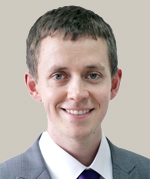 Rob Neal
Rob Neal
After graduating from the University of Birmingham (BA Hons: French and German), Rob spent two years in Japan where he worked as an assistant English teacher. He then completed a Masters degree in TESOL at Lancaster University before teaching English for two and a half years at Peking University. Upon returning to England he did a PGCE in Modern Foreign Languages at Sheffield University and currently teaches Mandarin at an inner city school in Manchester where most of the students are from minority ethnic backgrounds. He is currently studying for an MEd/PhD at Cambridge University where he is researching why the acquisition of Mandarin tones is so challenging for Anglophone learners. He has been involved in the 'Our Languages' Project which emphasizes collaboration between 'mainstream' and 'community' schools.
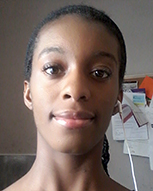 Joy Okwuonu
Joy Okwuonu
Joy Okwuonu completed her BA in Education with English at the University of Cambridge and is doing her MPhil in Education and International Development in the same department. Her Igbo heritage and her apparent inability to proficiently understand and communicate in Igbo has stimulated her interest in: the view that indigenous language learning is dwindling among youths and children living in African diaspora. This interest also encompasses investigating the need to make the paths to language learning more accessible to children and adults alike – especially considering the potential social and cultural benefits. Her previous volunteering opportunities in nursery, primary and secondary schools have contributed another area of interest: that is, the interaction between introverted or more reserved personality types in the classroom environment and later language and communication competency.
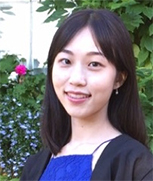 Lini Xiao
Lini Xiao
Lini is a continuing PhD student in the Faculty of Education following the completion of her MPhil degree in Research in Second Language Education. Her research interests include language and identity, language socialisation, and multilingualism. She is particularly interested in bringing together sociolinguistic theories of language and situated cognition theories to understand the social nature of and social implications for language use and development in contexts of migration and linguistic diversity. Prior to joining the Faculty, she received her BA in English from Sun Yat-sen University in China and studied linguistics at University of Cologne in Germany for one year as an exchange student. Lini’s PhD project aims to explore the socially situated nature of heritage language development and its symbiotic relationship with identity formation.
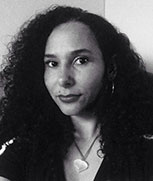 Heidy Perez-Cordero
Heidy Perez-Cordero
Heidy M. Perez-Cordero is a PhD student researcher at the Faculty of Education, University of Cambridge. Her research focuses on exploring the Identity of Language Teachers Through Applied Drama. Her interests include teacher’s training & wellbeing, decolonizing education, creative research, and the correlation between identity and pedagogy. She has been an educator for 16 years in Puerto Rico, US, and UK; promoting creative arts, democratic teaching-learning process, dance, movement, and applied drama. She is currently the Chair of Cambridge Ethnic Community Forum, and, previously, the Chair and outreach coordinator of Escuelita CIC, a Cambridge heritage Spanish language school. She holds a M.A. in Educational Theatre from NYU, and a B.A. in Secondary Education majoring in Theatre from the University of Puerto Rico.
 Yue Zhou
Yue Zhou
Yue is a continuing PhD student at the Faculty of Education following the completion of her MPhil degree. Her research interests include issues of learner wellbeing, identity, and heritage language education in the transnational migration context. Prior to her postgraduate studies, Yue obtained a BA in English at Nankai University in China and had been an exchange student at the University of New South Wales, Australia. She had various experiences in teaching and researching heritage language learners both in Australia and in the UK. Her PhD project aims to explore the wellbeing of young British Chinese learners and how their heritage language learning experiences play a role in it.
